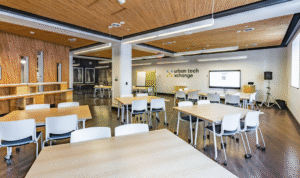
- Kim Kisner
- Business
- 09/03/2024
How Habitat Conservation, Sustainability Plans Help Manage Environmental Impact For the Long Term
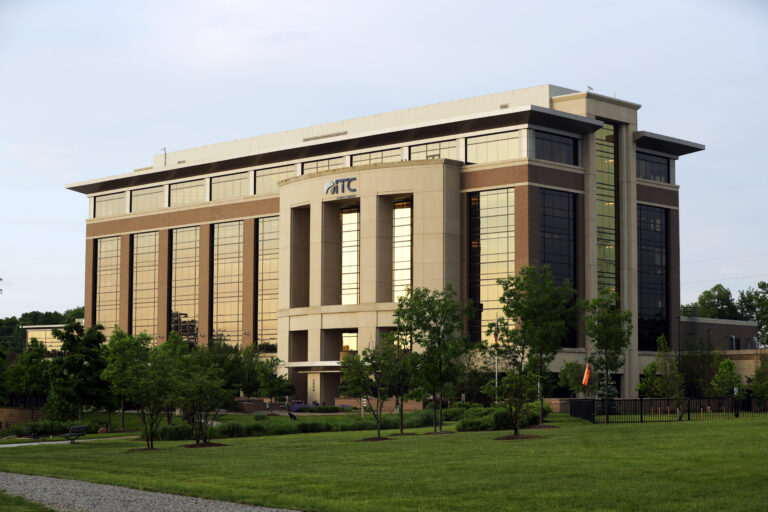
Founded in 2003 and headquartered in Novi, Mich., ITC Holdings builds, operates, and maintains high-voltage electric transmission systems that carry electricity in Michigan and around the Midwest.
The company owns and operates approximately 16,000 circuit miles of transmission lines across 90,000 square miles of service territory.

SBN Detroit interviewed Simon Whitelocke, senior vice president and chief business officer to find out more.
Q: How does ITC approach sustainability?
A: We are central to a broader sustainability initiative aimed at decarbonizing the electrical grid, facilitating the shift by interconnecting greener electricity, even though we don’t generate it ourselves.
When building transmission infrastructure, we are highly mindful of our environmental impact. Our transmission lines, which have a lifespan of sixty to seventy years, traverse both urban and rural areas. We strive to be good neighbors to the environment, habitats, and wildlife around them.
Before starting a transmission project, we conduct an environmental assessment to determine the best route, the type of land it will occupy, and potential impacts on sensitive habitats or endangered species. We also carefully plan the construction timing to minimize its environmental impact.
Q: How has ITC evolved over time when it comes to sustainability?
A: From day one, ITC has prioritized being mindful of our impact, making environmental responsibility a core part of our company culture. As we’ve expanded into diverse geographies and worked in various environments, our commitment has deepened. Our repertoire and tools have grown and adapted over time, leading to enhanced and improved expertise.
Q: How has the infrastructure evolved, and what are the solutions for building toward sustainability?
A: We operate with significant oversight, often collaborating with federal, state, and local governments, which provide a framework of standards.
Cities and states have developed sustainability plans that we work within. For example, Michigan has the MI Healthy Climate Plan, and we align our efforts with it. The public is also more aware and engaged, and there is much greater support for sustainability initiatives today.
Q: How does your work vary from state to state when it comes to dealing with habitat and environment?
A: Every state presents unique challenges and regulates environmental matters differently, so it’s certainly not a one-size-fits-all approach.
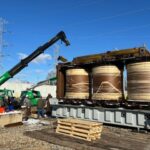
At the federal level, there are baseline protections for certain species that apply nationwide, but some states have additional protections for species-specific to their region.
For instance, Michigan is unique due to its extensive wetlands. Compared to Iowa, which has fewer trees and less water, Michigan presents a totally different set of environmental factors. These variations create a lot of state-to-state differences in our work.
We collaborate with local and federal governments on mitigation plans to ensure our impact on the environment is as minimal as possible.
What are the biggest challenges that you encounter in managing habitat around building and maintaining infrastructure, and what are the lessons you have learned along the way?
A: ITC takes great care to protect the environment and habitats surrounding our infrastructure, but the most challenging item we have encountered is invasive species. To counter this, we employ adaptive management techniques, meaning, that once we plant something, we don’t just walk away from it. We consult with biologists to regularly monitor those areas to control, and remediate, any invasive issues that may arise.
Q: How do you handle materials and recycling?
A: We partner with Goodwill Greenworks, among other recyclers, to recycle our construction material. As we replace infrastructure the old materials such as wires, cables, and metal copper steel go to them, versus a landfill.
Goodwill Greenworks also creates job opportunities and supports community development by training individuals in green jobs and environmental management.
When we decommission old equipment, such as batteries at substations, we ensure that these materials are properly recycled. This includes recycling oil, metals, and other components with the help of our experts. We send concrete structures used as foundations for equipment to recyclers that crush and reuse it as aggregate, or to produce new concrete. Similarly, untreated wood, such as old pallets or shipping crates is recycled into mulch or used as fuel for co-generation. Also, old wooden poles are often donated to landowners versus having to be disposed of in a landfill. Overall, we are increasingly focused on recycling and being mindful of our environmental impact.
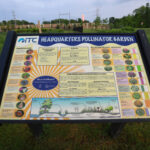
Q: How does ITC incorporate sustainability into its operations beyond infrastructure and recycling?
A: In 2022 we received a Gold Tier Program Award for our efforts at our Novi headquarters and we’ve been awarded several Conservation Certifications from the Wildlife Habitat Council. I think this demonstrates our commitment to environmental stewardship. The property the campus sits on includes significant wetland areas, and we are highly sensitive to maintaining and protecting these natural spaces. This approach extends to our transmission corridors and warehouses, where we prioritize living in harmony with the environment.
The 2003 blackout was ultimately triggered by a power line coming in contact with a tree, so we are particularly mindful of managing vegetation under our power lines. When we remove trees, we have replaced them with habitats such as prairies that support local species and pollinators. This reflects our focus on sustainable land management practices. Additionally, many of our transmission corridors are integrated with walking and biking trails, allowing people to connect with nature while ensuring the reliable delivery of electricity. We strive to balance the need for power with the importance of preserving green spaces.
Be sure to subscribe to our newsletter for regular updates on sustainable business practices in and around Detroit.
Kim Kisner
- All
- Business
- Community
- Education
- Events

Eastern Market Partnership, in collaboration with the City of Detroit’s Office of Sustainability Urban Agriculture Division, has announced $240,000 in grant funding to support Detroit-based farmers and farmer collectives. The grants will advance food access, climate education, sustainable land use, and economic opportunity, with priority given to Black- and Indigenous-led farms, youth-led initiatives, and projects rooted in historically disinvested neighborhoods. The recipients – ranging from cooperatives and community...

Citizen Robotics is a Detroit-based nonprofit that advances the use of robotics and digital manufacturing in residential construction, focusing on improving productivity, sustainability, and long-term affordability. Best known for its early work in 3D-printed housing, it explores how alternative construction methods and new financial models can reduce material waste, lower lifetime operating costs, and enhance the resilience of homes. SBN Detroit interviewed Tom Woodman, founder and president of...
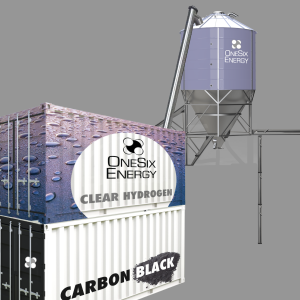
Detroit-based OneSix Energy is a clean-energy technology company focused on advancing a lower-carbon approach to hydrogen production. Headquartered at Newlab in Detroit, the startup is developing a proprietary methane pyrolysis system designed to produce hydrogen without carbon dioxide emissions, while also generating solid carbon as a co-product. SBN Detroit interviewed with cofounder Stefan Sysko about the company’s origins, its approach to hydrogen production, and why Detroit is positioned...






